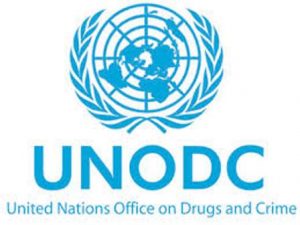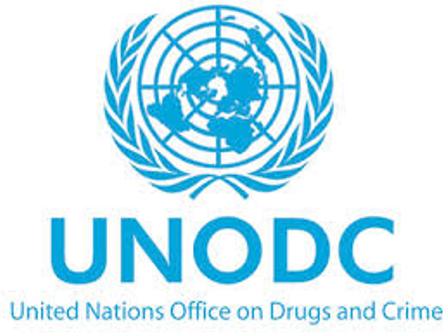 United Nations Office on Drugs and Crime (UNODC) has reiterated its readiness to support Nigeria in pursuing the complementary objectives of preserving public safety and protecting children.
United Nations Office on Drugs and Crime (UNODC) has reiterated its readiness to support Nigeria in pursuing the complementary objectives of preserving public safety and protecting children.
The organization made the commitment at a consultative workshop to address the situation of children recruited and exploited by terrorist groups in order to identify priorities in the areas of prevention, reintegration, and justice so as to foster a multi-disciplinary coordination in addressing the challenges.
The workshop which was organized in Abuja under the EU-Nigeria-UNODC-CTED Partnership Project was attended by relevant stakeholders including representatives from the Office of the National Security Advisor (ONSA), Federal Ministry of Justice, Federal Ministry of Women Affairs and Social Development as well as representative of the State Ministry of Women Affairs and Social Development of Adamawa, Borno and Yobe States.
Other participants include representatives from the Federal High Court, National Human Rights Commission, Legal Aid Council of Nigeria, The Presidential Committee on the North- East Initiative, prosecutors, social workers, and civil society organizations, as well as UNICEF, OHCHR, IOM and the Chief Judges of Borno and Yobe State High.
Participants discussed gaps in the current preventative framework, needs to improve coherence and effectiveness of rehabilitation and reintegration efforts, as well as necessities for specialized training on the protection of children in a counter-terrorism context.
The representative of the Federal Ministry of Justice noted that in the past, Nigeria neglected the issue of children formerly associated with terrorist groups. He expressed the need for Nigeria to rise up to its responsibility to support these children in their journey to become tomorrow’s citizens.
He also called on experts, both local and international, to proffer practical solutions towards tackling the phenomenon in order to secure the future of the Nigerian child and the country as a whole.
It is estimated that Boko Haram and ISWA, since 2009, have recruited about 8000 children. Due to the difficulties associated with collecting reliable data it is likely that these figures are underestimated. In 2014, the abduction of 276 girls from their school in Chibok attracted international attention, unmasking the brutality and disregard these groups hold against children.
“Armed groups in the north-east have been recruiting and using children as combatants and non-combatants, raping and forcing girls to marry, and committing other grave violations against children. Some of the girls become pregnant in captivity and give birth without any medical care or attention” reported a civil society representative from Maiduguri.
A 2017 report by UNICEF found that the use of children to carry out suicide attacks had become a defining feature of the conflict.
A major highlight of the workshop was the introduction of the training package (including the UNODC Handbook), and Roadmap on the treatment of children recruited and exploited by terrorist and violent extremist groups by UNODC.
The organization has been providing technical assistance to Nigeria since 2015, through its Global Programme to End Violence against Children to support the efforts of over 30 Member States in different regions of the world addressing this urgent and complex phenomenon.

